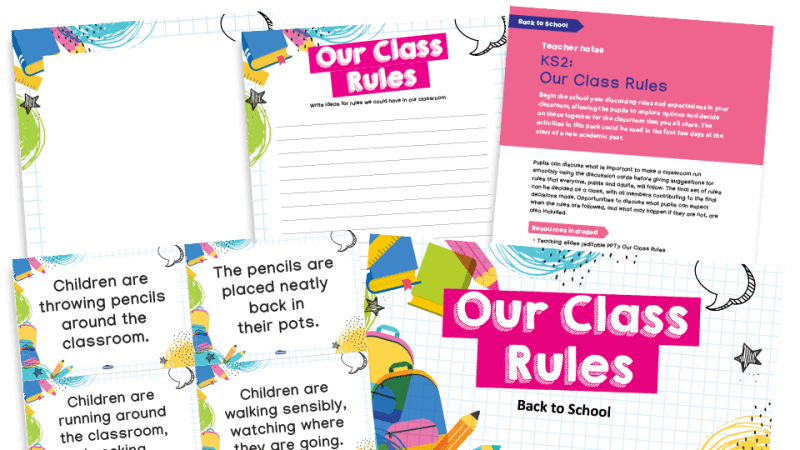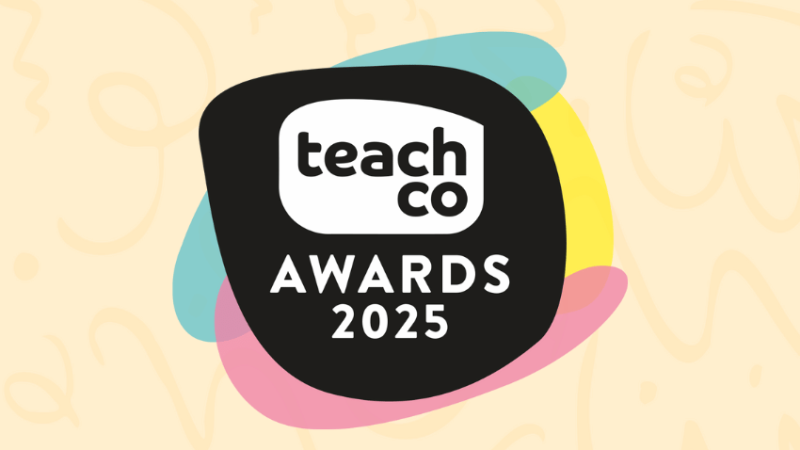Parental engagement – How to bring parents on board

What is parental engagement? What benefits does it offer? What strategies can you try? Join us as we explore all this and more…

- by Teachwire
- Classroom expertise and free resources for teachers

There is a plethora of evidence available that shows parental engagement should be made a priority by schools. But what’s the best way to go about it?
What is parental engagement?
Parental engagement and parental involvement are common terms that are often used interchangeably. There is, in fact, a difference in meaning between them.
While there are debates about what falls under each term’s definition, a simple way of putting it would be this:
- parental involvement is more about a sense of ‘doing’ at home or school
- parental engagement concerns the parent–school partnership
When done well, parental engagement connects families to your school through a sense of belonging. Successful schools are those where parental engagement is central to the school’s character, rather than on the periphery.
Benefits of parental engagement
There is a wealth of evidence that suggests stronger parental engagement leads to better outcomes for pupils.
While improved academic performance comes to mind first, the benefits of parental engagement are not limited to that.
Parental engagement helps in building a better support network for parents and carers, raising aspirations for pupils and their families alike.
This happens when parents take advantage of a stronger school–home bond and improve their home learning environment with advice and support from school, especially their children’s teachers.
Disadvantaged backgrounds
Effective parental engagement strategies especially help benefit children from disadvantaged backgrounds, as they will give families more confidence and ability to manage and support their children’s aspirations.
Stronger school–home relationships also contribute to a child’s holistic development: studies have shown that greater involvement of parents in a child’s education and learning process can lead to improved behaviour, and even motivation in classrooms.
Increased engagement with parents and carers is linked with better school attendance as well, helping narrow the attainment gap.
When clear communication channels are developed, not only do parents gain a better understanding of their child’s school life, they also come to appreciate the challenges faced by teachers.
In turn, teachers can learn from parents’ experiences and knowledge to complement their teaching and learning, fostering a positive learning environment and school culture.
11 effective ideas for involving families
Host an event
Gather the best examples of the most exciting projects you have undertaken over the course of the year and showcase them for parents and carers.
A gallery approach is effective, with students and parents able to peruse and admire classmates’ work at their own pace.
You might choose to have the displayed outcomes manned by a class representative so they can contextualise the work and field any questions that may arise. Performance pieces and videos make a wonderful addition as well.
Parental surgery
Host a ‘parental surgery’ once or twice an academic year to give parents or carers an opportunity to discuss any issues with class teachers or school leaders.
The ‘surgery’ can be generic, where parents are welcome to come and ask questions or seek information about individual needs, or you could hold themed events, where you specify that there will be members of staff there to field questions on a specific topic like supporting homework, encouraging reading for pleasure, supporting relationships with peers or learning through play.
Bridge the gap
How do parents at your school support their child in homework where their own subject knowledge may be lacking? Can you direct them to helpful websites or resources that can bridge the knowledge gap?
Target practice
Ask parents to set a target with their child. It may be as simple as getting up ten minutes earlier or something more curriculum based. Ask them to share their findings at a mutually agreed juncture.
Getting started
Share these conversation starters to help parents talk to their children about their school day:
- Tell me something you learnt today that you didn’t know before
- What was the best question you asked today?
- What piece of work did you put the most effort into? Why?
Home learning
How do you communicate the purpose of homework to parents? Is it to encourage dialogue about their learning at home or extend and enrich classroom learning? The level of support parents provide may be very different depending on what you want to achieve through the piece.
Build links
Organise a ‘bring an adult to school’ day to build links with significant adults in your students’ lives and give parents, carers and grandparents some insight into what learning looks like for their child on an average day.
Knowing what the classroom routines feel like, seeing how their child interacts with their peers in the classroom or experiencing some of the different learning strategies that their child works with can really help them to understand how to support him or her at home.
Thanks to Professor Bill Lucas for these ideas. He is the director of the Centre for Real-World Learning at the University of Winchester. Find him on Twitter at @lucaslearn. This is an extract from Best of the Best: Engagement by Isabella Wallace and Leah Kirkman (£9.99, Crown House Publishing).
Select a parental engagement champion
Offer to become your school’s parent engagement champion. Make yourself visible and spread the word among the parent community, as well as with colleagues.
Consult through surveys, or via the school parent body, on issues that matter to the community you serve and which are of concern, and collaborate with families to find ways to address them.
For example, you might consider working with family liaison officers to help address challenges that some within your community may be facing.
Establish a parent council
Look at establishing a Parent Council to act as a formal, consultative body with a distinct voice, and the power to influence school decisions.
Write a parental engagement plan
Work with your SLT to develop a proper, written parental engagement plan. Regularly review it. This will allow you to track and assess parental engagement.
Over time, you should begin to see the benefits, in the from of greater buy-in from parents and the community, and growing support for your school’s aims and ambitions.
Consider formal training
Consider formal training on parental involvement strategies as part of your own CPD. This might include learning about overcoming barriers to engagement, and taking a whole school approach where the teaching community and leaders work hand in hand with parents for the benefit of the children.
Such personal professional development could lead to practical outcomes, such as establishing a parent voice group within your school.
Trending
Thanks to Michelle Doyle Wildman for these ideas. Michelle is acting CEO at Parentkind. Parentkind has produced joint guidance with NAHT and ASCL on How to Build Effective Home-School Partnerships. It also offers training courses on parental engagement.
How to use parental engagement to narrow the attainment gap
Don’t undervalue personal contact
- Prioritise personal contact with parents to demonstrate appreciation for their feedback.
- Use informal parent engagement tactics. For example: greet and engage parents when they bring their children to school; prioritise opportunities for parents to meet educators in the classroom; ask teaching assistants to show parents strategies for improving reading at home.
Communicate
- Provide parents with clear, detailed, and focused information.
- Use ICT to provide parents with information and interaction possibilities.
- Set clear expectations for families and children. The ‘structured conversation‘ established by Achievement for All can help with this.
- Consult with parents regularly and communicate your findings promptly.
Give more options
- Consider logistical challenges for parents when designing activities – fees/cost, time, and transportation could be some of the things to look out for.
- Provide universal services to decrease stigma.
- Use a variety of strategies for engagement and let parents choose the activities they wish to participate in. You could use workshops and courses to encourage parents to become involved in their children’s education. Some examples could include family literacy classes, involving parents in the classroom (e.g. listening to pupils read) or inviting them to volunteer in extracurricular activities.
Megan Morris is head of brand for cashless payments & parental engagement at ParentPay. Read more about how to employ effective parental engagement strategies with Schoolcomms’ Ultimate Guide to Parental Engagement.
How to bridge language and cultural barriers
Caroline Scott explains how to raise engagement with the families of EAL learners…
I’ve worked in many schools that had a large number of pupils with English as an additional language. One thing I feel deeply passionate about is the importance of raising engagement with the parents, carers and family members of EAL learners.
These parents may have low levels of English or may come from cultural backgrounds with very different expectations about how a school should work with parents.
Culture shock
It’s always worth reminding ourselves that the parents and carers of international new arrivals are often undergoing a similar transition to their child.
In a possibly unknown culture, operating in an unknown language and sometimes with few or no members of a community who speak the same language around them, the grown-ups need support, too. These families have a significantly larger transition to make.
Unfortunately, whilst many schools have provisions for engaging fluent English-speaking parents, they can struggle to connect with those from minority language backgrounds.
From my experience, these parents can often be observed quickly leaving the playground after dropping off their children, and avoiding interaction with school staff.
They miss out on the chance to develop those all-important relationships that are at the heart of every successful education journey.
Sharing and connecting
So, what can we do? Accept that communication is simply impossible with some families? Of course not! But the way to form connections may often not be obvious, especially when language and culture are barriers.
In the primary context, regularly inviting parents into schools to share their child’s work or get involved in experiences with their child provides significant opportunities to nurture engagement.
Bringing family members into school in this way is especially powerful for younger children, who are more dependent on their parents.
They tend to be full of enthusiasm for the idea of showing their parents what they have been learning; unlike secondary learners, who are working towards having more independence from their parents.
Inviting parents into school to work with their children can have many benefits. First, it provides an opportunity for pupils to share their school experiences (and all the wonderful things they are doing during the day) with their parents, who may not understand how UK schools work.
This also gives you an interesting insight into how different families work together, and how you can support them further.
Comfortable setting
EAL parents and children will naturally use their home language to communicate about the event or occasion they’re attending, thereby breaking down language barriers and providing a comfortable setting. Children often feel pride in translating what they’ve done to family members.
School events can also offer the chance to praise the use of pupils’ home languages, and help ensure they have continued importance for the children and their families.
Sometimes parents and children don’t value their home language until it’s too late. Stopping using the home language can have detrimental results on English development and on learner identity.
So, we should be encouraging parents and their children to enjoy and use their home language to ensure that they add a language rather than replacing one.
We are after additive bilingualism (where a learner retains their main language), not subtractive bilingualism (where the learner eventually loses a language).
Ultimately, getting parents and carers through the door is the crucial first step to raising engagement; and they will often be keener to come to school for their child’s benefit, than for a meeting with a teacher – which can be quite a stressful prospect even when you are familiar with the language and culture!
Once they are in the building, and enjoying time with their children, you’ll have the perfect opportunity to meet and warmly welcome them.
You can discover more about them and show them that they are valued members of your school community.
Taking it further
There are some really effective additional steps you can take to promote parental involvement, regardless of language or cultural background.
Create opportunities to showcase pupils’ work – Organise events where children can display their work to their parents. Promote these events to the children, who can encourage their parents to join.
Host interactive school events – Arrange events such as show-and-tell sessions or school fairs that encourage parent participation.
Provide childcare options – Offer a creche during school events to make it easier for parents to attend.
Translate – Use parent buddies who speak the language to support newcomers, and translate welcome books and other materials into the majority of the spoken home languages in your school. Involve bilingual support staff and the Parent-Teacher Association to help with communication.
Arrange for translated home visits – Some parents might feel more comfortable in their own homes. This will also help you to understand more about the learner’s home life, which will, of course, play a role in how they apply themselves to learning at school.
Caroline Scott is the founder of Across Cultures, creator of the Learning Village programme, author and EAL/Multilingual advisor.










